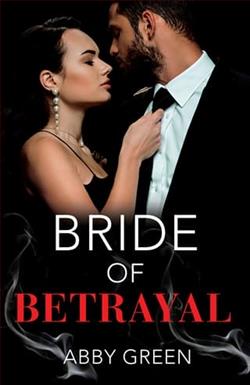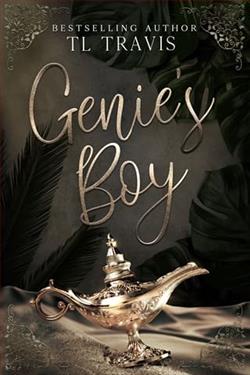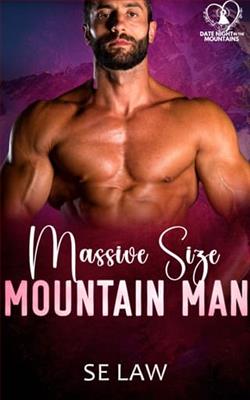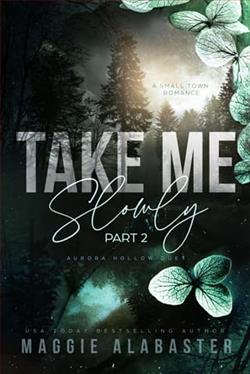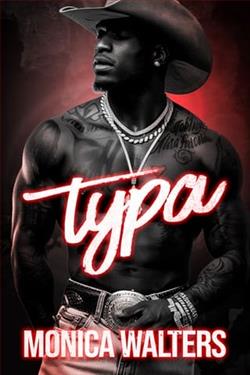Page 19 of An Irish Summer
“No one said you had a pretty face.”
He gasped in mock offense, slapping his hand to his chest. “You humble me, Chelsea.”
“Someone has to.”
He rolled his eyes, then settled back into drumming his fingers on the steering wheel and cutting tight corners of country roads.
“What about this one?” I asked, gesturing out the window to a dilapidated stone wall shaped like a square.
“Oh, that one used to be used for human sacrifice.”
I whipped my head in his direction just in time to catch a smile at the corners of his mouth.
“Now you’re just making shit up,” I said. “And you’re a terrible liar, you know.”
“I’ll have to work on that,” he said. “Not that you could teach me anything.”
“What’s that supposed to mean?”
“You’ve one of those faces,” he said. “The kind that tells everyone everything you’re feeling, even if you don’t want to.”
“You’ve known me for a week,” I said, trying not to sound defensive. “You couldn’t possibly make that observation.”
“You’d be surprised how observant you become when your jobs consist almost solely of people-pleasing.”
I thought about him tending bar and shuttling tourists around the country and doing odd jobs on the farm and telling stories to those who have apparently earned them. He had a point.
“Does sharing these observations usually please people?” I asked.
“People who are willing to be pleased,” he said. I bit my tongue so I wouldn’t smile, especially when I could see how bad he wanted me to.
We rumbled past a sign welcoming us to County Wicklow, followed by a few directing us to a place called Glendalough. I refrained from asking questions because I knew answers were coming, but it was becoming increasingly difficult as I felt we were getting closer to our destination.
After what felt like an eternity, we pulled into a parking lot at the base of a hill, and Collin turned off the truck. “Ready?” he asked.
“As I’ll ever be,” I said. “Can I ask now what this place is?”
“I’ll explain on the walk.” He grabbed the basket from the back, and I forced myself to look away from the way his long fingers flexed around the handles. From our position at the base of the hill, I couldn’t see much more than more hills and more ruins in the distance. But I followed, anxiously awaiting the grand reveal and silently worrying there might not be one.
I was trying to focus on steadying my breathing so as not to seem so out of shape when we reached the top of the hill and came face-to-face with a cemetery bathed in golden sunshine. Rows upon rows of mossy headstones leaned into one another, reaching out from overgrown grass and long-abandoned dirt paths. A few larger structures missing walls and ceilings, and another in a cylindrical shape, occupied the space between the tombstones, all of which sat just slightly off-kilter.
“You brought me to a cemetery?” I asked.
“A sixth-century monastic settlement,” he corrected. “And some of the most beautiful lakes you’ll ever see, but we aren’t there quite yet.”
I hummed, running my fingers over a tombstone and trying to read the name beneath the moss. I usually found cemeteries depressing, but this was undeniably beautiful. Each headstone rested at a different angle, moved by hundreds of years of shifting earth.
“It used to be a city,” Collin said as we wove our way around the ruins. “A proper one, with farming and religion and that. Real peaceful for the monks.”
“What happened?” I asked, turning my gaze to the round tower jutting into the sky.
“Vikings,” he said. I waited for him to continue, but he stopped talking in favor of looking at me looking at the pillar. “Grand, isn’t it?”
“What happened to the monks?” I spun in a slow circle, studying the rows of graves surrounding the skeleton of what had once been a cathedral. Collin chuckled softly at what I imagined were my endless questions, and I turned to face him for his response.
“Some died,” he said, “and others fled to new settlements. But it was par for the course, really. A lot of Irish history at that time was dying and fleeing, I’m afraid.”
“How do you know so much about history?”








